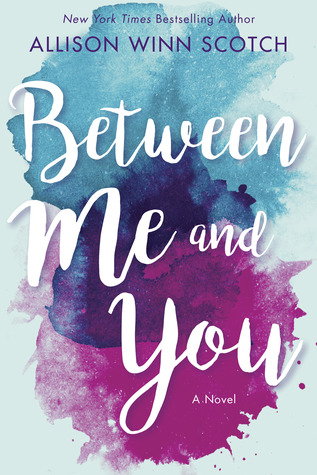 Synopsis:
Synopsis:
Author Allison Winn Scotch’s newest book is an exploration of falling in and out of love, told from two perspectives — one rewinding history, one moving it forward — and each with bias and regret.
When their paths first cross, Ben Livingston is a fledgling scriptwriter on the brink of success; Tatum Connelly is a struggling actress tending bar in a New York City dive. They fall in love, they marry, they become parents, and they think only of the future. But as the years go by, Tatum’s stardom rises while Ben’s fades. In a marriage that bears the fallout of ambition and fame, Ben and Tatum are at a crossroads. Now all they can do is think back.
A life of passion, joy, tragedy, and loss — once shared — becomes one as shifting and unpredictable as a memory. As the pieces of their past come together, as they explore the ways love can bend and break, Ben and Tatum come to see how it all went wrong — and wonder if there is anything they can do now to make it right again.
Review:
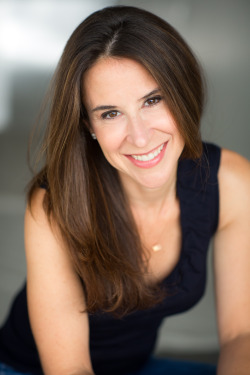
Allison Winn Scotch is among my favorite authors. I am always happy and excited when she publishes a new book, as her work has never disappointed. Happily, Between Me and You is no exception. In fact, with this latest release, Scotch demonstrates again that her work grows increasingly richer, deeper, and more resonant with each successive book she pens.
As noted, Between Me and You is narrated from the two perspectives of Ben and Tatum. Ben tells the story of their relationship in reverse (starting from the present) while Tatum relates the tale in chronological order. In the hands of a less talented author, the competing timelines could have proven fatally confusing for readers. However, Scotch deftly leads her readers through an examination of a derailed relationship by partners who are, at the outset, unsure whether they can or want to save it.
Ben and Tatum meet in New York City as part of a bet when they are both students. Ben is an aspiring screenwriter from a privileged background who has left the corporate world behind and returned to school to pursue his dream. And he is teetering on the brink of a big break. Tatum left her small-town life behind to become an actress but is making ends meet by working as a bartender. Ben has recently parted from his girlfriend who chose her career over him. The story of Ben and Tatum’s meeting and early days together is charming and relatable, as they are both instantly likable and endearing characters. After completing their studies, they relocate to Hollywood, have a child, and both are wildly successful in their careers. Predictably, success does not come to them in equal proportion or duration.
Although Scotch has elected to tell their story against the backdrop of show business, the stressors that threaten their marriage are universal — ambition, competitiveness, jealousy, insecurity and feelings of inadequacy. The impact of fame, and being surrounded by both sycophants and backstabbers, is thrown in for good measure. Not to mention the pressure of raising a child, especially when careers requires travel and long periods of time away from home. Scotch throws lingering affection for a prior lover and infidelity into the mix, as well.
The result is a refreshingly insightful, poignant, and touching examination of a relationship that was, at the outset, foundationally sound but nonetheless falters under the weight of external demands and internal demons. As Ben and Tatum contemplate whether they will move forward or apart, they also evaluate their roles in the making and undoing of a loving relationship. And consider whether they are capable of forgiving each other . . . and themselves.
Scotch exerts skillful control of a story that could have veered into maudlin cliches but, instead, plays out in a steady, measured, and, most critically, believable manner. Somewhat miraculously, there is no villain in this story. Scotch also manages, despite all of their flaws and the trappings with which Ben and Tatum are surrounded, to craft two extremely empathetic characters for whom readers will find themselves cheering. Undeniably, though, as the two divergent narratives converge and ultimately merge in the present day, readers may long to hear the swell of violins, signifying a classic Hollywood-style happy ending. Does Scotch deliver it? You’ll have to read Between Me and You to find out.
Excerpt from Between Me and You
Ben
November 2016 (Now)
I told myself that if she showed, that would be the sign I needed.
If she showed, maybe we could find a way to rewind, rewrite, do it all over. Do it all better. Do it all again, only differently.
It’s silly; it’s something out of a Hollywood ending, and I’d know that better than most. It’s not how I’d write it, but it’s how the studio would want it, what would appeal to the demographic they were courting: Men will want to go home and screw their wives, call their girlfriends; women will weep and know that love conquers all.
I snort to myself, though it’s lost in the bluster of the wind, the squeal of a motorcycle racing too quickly down Ocean Avenue, empty on this overcast Sunday morning.
Did I ever believe that? Did I ever pin my hopes that love could conquer all? It feels like so long ago: when we met each other, when we loved each other without conditions.
A familiar tornado of grief spins inside me. Though it’s not just grief for her. It’s for both of us. For me too. How naive we were, how we lost ourselves to so many things—her career, mine for a while, Joey, our mourning, everything that piled up to be the weight of too much. Me more than her, I suppose, though I never admitted this aloud. It was easier to point fingers, make her feel responsible, even though I know, if I peel back enough layers to my core, that I was equally so. More than equal. She was always sturdier than I was, elusive in the way that an actress needs to be: permeable, which also made her more adaptable to all the shit that came our way. I was who I was, always had been, and hadn’t been able to adapt, to duck right when a left punch was thrown, to duck left when the right one came at me too.
But still, maybe today we can right ourselves.
We can. We have to.
I say this aloud, against the wind, as if putting it out into the universe, here where the earth dives into the sea, makes it true. We can right ourselves.
It’s so romantic, so unlike who I’ve become, that I’m surprised to discover how much I believe it, how much I mean it. How much I need it. I need her. I want her; my stomach turns at the notion of just how badly I do. I’ve staked our future on her showing. Which is heady and also dumb, since I have conveyed none of this to her.
But she knows where to find me, knows exactly where I’ll be.
I check the time on my phone. Not that I’ve told her I’d be here. Like a stupid script, some dumb chick flick, I’m throwing it to fate: If she shows, we’ll give it another go. Call off the lawyers, which she said she didn’t really want anyway. Did I want them? A year ago I was certain, but bruises fade until you can’t detect them across your healed skin, and now, even when I search for those welts, I find I’m unable to see them. Feel them, yes, sometimes if I press myself in the right places I can still feel them, but that’s probably the point. That you can still detect the pain but don’t have a constant reminder. That’s the only way to fix us: This is where you hurt me; please don’t do it again.
So here I am, casting about, looking for the familiar bounce of her step, the way her hair fans back and forth as she walks, the way her spine points exactly north with perfect posture thanks to endless years of Pilates and yoga and whatever else the studio pays for and implores her to do.
I lean over the white picket fence that lines the park’s running path, tilt toward the ledge below, the drop-off that crescents into the beach, then the vast expanse of ocean. When we first moved here, we lived just around the corner in a one-bedroom bungalow that felt made for us. We’d stumble down this same path on the weekend mornings, hands linked, toward the farmers market or for a beckoning cup of coffee. She’d be exhausted from her late shift at the bar; I’d be wired from a night of writing too late.
I press my palms against the fence, straighten out, then head down the sun-bleached steps toward the water, the air swirling and smelling of salt and nostalgia.
She’ll know to find me down here, where I always am on his birthday, where something beckons me year after year, as if this ritual brings me peace. She’ll come, I tell myself. She has to. I need her to.
The beach is mostly deserted. It’s too cold to swim, and the sun is battling a swath of thick clouds that won’t dissipate until late afternoon, just before sunset, when it’s too late to enjoy the beach anyway. There are a few lone surfers, bundled in their rubber wetsuits, a determined jogger every now and then. I kick off my flip-flops by the concrete path’s edge, then step onto the sand, my arches and heels leaving imprints, tracks, as I go. We also used to do this, take morning beach walks in those heady early days of our marriage. We never had a destination or an end point in mind. We simply walked to keep each other company, talking for hours. Sometimes my calves would be sore the next day. I shake my head: I haven’t thought about all of this for ages, years.
Jesus.
Somehow between those days when the sunrises melted into the sunsets and now, we got here. Here. I blow out my breath, remembering New Year’s, remembering Sundance, remembering Joey’s birth, remembering the lot of it. We weren’t always split in two; we weren’t always beyond repair.
My feet are in the chilly seawater now, sending a jolt up through my ankles, to my calves, my thighs, nearly to my heart. I stretch my arms upward, like I’m offering myself to the gods of the ocean. It’s not the first time I’ve considered it: swimming as far out as possible, seeing what happens from there. But I’m not brave like Leo. I reconsider: I’m not reckless like Leo either.
I find a pack of old cigarettes in my pocket. I’ve never enjoyed smoking, how it makes me light-headed, its disgusting aftertaste. That it will slowly kill me. For a while there, I didn’t care, though. Now, I’m wiser. Now, maybe I’m more hopeful. So I raise an unlit cigarette to my mouth, let it linger because I like its heft, but not its consequences. Like so many things in my life, I’ve learned to straddle the middle and just try to get out alive.
A lithe, blond surfer swims in, just a hiccup down from me, shaking the water off, then offering a little wave. I drop the cigarette back into the pack, then smile back, wondering if she means to wave at me, if this lithe blond surfer has mistaken me for someone else. Not that I’m so bad, not for forty-two, which is midlife in theory but here in Los Angeles could really be an extension of prolonged adolescence. Hell, some of my friends still haven’t married; a few still run around with starlets in their lower twenties, especially those who have done well for themselves: drive the Porsche, have a spread with a view in the Hills. Sometimes they’ll ping me and say, “Come out dude, let’s roll, let’s score.” But none of that feels important like it used to: the Porsche, the house made of glass in the Hills. Initially, in those first few early months of being single, sure, well, who wouldn’t find that liberating? Now I just want her. Our old life.
“Hey,” I say to the surfer. “Nice morning for the waves?” I self-consciously run my fingers over my dark stubble that is peppered with a tiny bit of gray.
“Killer,” she says. “The best.” And then lofts her board under her arm and glides away toward the parking lot. “See ya.”
I peer around. The beach is deserted again.
She’s not coming.
I lose my breath for a beat, punched in the gut with the realization. I actually believed that she was as hopeful as I was, that she was willing to forget how broken we’d become.
“Dumb, dumb, dumb, dumb, dumb,” I mutter aloud.
It was a stupid bet I made with myself, a stupid way out from the corner we’ve backed ourselves into. The Hollywood ending. But Hollywood endings aren’t really life, aren’t anything more than what I’d type into a draft before hitting “The End.”
My dad always told me that I was too romantic. Being a writer? he’d scoff. Not exactly what we had planned for you. He’d pour himself a scotch, adjust his tie, and gaze at me in the way that I could read only as disappointment.
As if anyone’s plans for anyone else can set their path. The same lesson I learned with Leo, and the irony isn’t lost on me. I should have said that to him then; I should have known better. Do what you want, do what you love. Be happy.
Instead, I lived to whittle down my young romanticism to prove my dad wrong. To show him that I had mettle, that grit wasn’t lost on me, even if I wanted to spend my days concocting fictional characters who allowed me to lose myself in other places, other worlds.
The wind kicks up, blowing the salty air over me, and I inhale deeply enough that my chest puffs up, and then I squeeze my eyes shut and remember why I came here this morning. I came here not just in hopes of seeing her, but to remember him too. How much he loved the ocean. How he wanted to retire here and surf. I should have told him to, but how was I to know? How was any of us to know?
“I’d have done it differently, you know,” I say aloud. To him, to her, to myself too. No one answers, of course. Just the continuous beat of the waves breaking in front of me, the ever-present swirl of the wind. “If I could go back and do it all differently, I would.”
I turn and head back to the concrete path where I abandoned my flip-flops.
A figure is running down the path in the distance. My gut spins—an honest mix of elation and nerves. But then I see the red hair in a ponytail flopping back and forth. I squint because I wonder if my brain is playing a trick on me, that I’m seeing something, a mirage, that isn’t really there.
But then she’s in front of me, startled a bit herself, out of breath, sweat running behind her ears.
“Ben,” she says. “Oh my gosh, hey.”
“Hey.” I lean forward and kiss her damp cheek. “I didn’t . . .”
My heart races, my brain goes to static. Amanda. Not at all whom I was expecting, not at all whom I’m ready for. I have to apologize for a million things, I’m sure. I stutter again. I was prepared to make a speech, to get down and beg for absolution, and yet, she isn’t here and Amanda is, smiling and seemingly open, and my pulse is hammering so quickly that I don’t know how I’m still standing.
Maybe this is the sign, that romantic one in the movies that the audience is clutching their seats and waiting for with their hearts in their throats. Even as I hear myself think it, I’m not sure I believe it, but what the hell?
My mind refocuses: on how good she looks, on how lovely she smells, on how something lights inside of me that feels a little feral, a little wild, like it used to whenever I saw her, even when we shouldn’t have been seeing each other at all.
“God, Amanda, it’s been forever,” I say.
She laughs. “Not forever. What, a year or two?” She smiles. “OK, I know exactly how long it’s been. Since May last year. Eighteen months.”
“That seems right.” I hesitate. “You don’t hate me?”
She smiles again, easily. “It was all a mess. So no, I don’t hate you.”
I nod, unsure of what to say next. I know what I came here for, but like so many things recently, I find that I’m willing to abandon my principles because they’re inconvenient. Write a shitty script? Sure! Leave with a different woman? Why not! I unexpectedly think of my dad again—Fuck you! I want to tell him—and how disappointed he’d be with this sliding scale.
“I just . . . I remembered what today was.” Amanda’s already pink cheeks turn redder, nearly matching her hair, and I push my dad out of my thoughts. “I . . . I thought you might be here. Remembered how you told me you’d do this.” She shrugs. “God, that sounds like a stalker thing to do. Really, I run down here most mornings. I just . . . I thought you might be here today.”
My brain is playing catch-up, assessing this unforeseen turn. Amanda showed. Tatum did not. I determine that this has to mean something, even if it’s not what I wanted it to mean when I woke this morning and resolved to win back my wife.
Finally I say: “Amazing how you knew. Of course I’d be here . . . I’m glad you found me.”

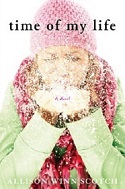
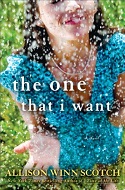
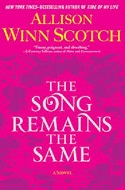
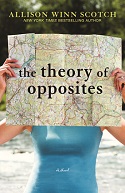
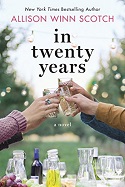
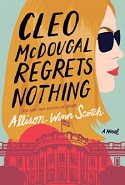
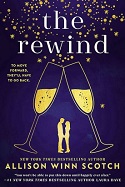
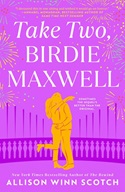
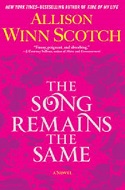
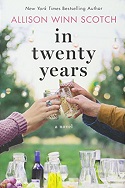


Comments are closed.